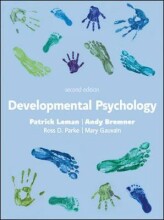Samenvatting: Social Psychology, Global Edition | 9781292186542 | ELLIOT WILSON ARONSON (TIMOTHY D SOMMERS, et al
- Deze + 400k samenvattingen
- Een unieke studie- en oefentool
- Nooit meer iets twee keer studeren
- Haal de cijfers waar je op hoopt
- 100% zeker alles onthouden
Lees hier de samenvatting en de meest belangrijke oefenvragen van Social Psychology, Global Edition | 9781292186542 | ELLIOT. WILSON ARONSON (TIMOTHY D.. SOMMERS, SAMUEL R.); Timothy D. Wilson; Samuel R. Sommers
-
1 Introducing Social Psychology
-
1.1 Defining Social Psychology
Dit is een preview. Er zijn 7 andere flashcards beschikbaar voor hoofdstuk 1.1
Laat hier meer flashcards zien -
Wat is het doel van de sociale psychologie
Het identificeren van eigenschappen van de mens die bijna iedereen vatbaar maken voor sociale beïnvloeding, ongeacht sociale klasse of cultuur -
De studie naar sociale beïnvloeding is een groot deel van de sociale psychologie. Wat houdt dit in?
Een fascinatie voor invloed van sociale situaties (en individuele verschillen) op menselijke gedachten, gevoelens en gedragingen -
1.1.2 How social psychology differs from its closest cousin
-
Hoe geloven sociaal psychologen dat gedrag uitgelegd moet worden?
Sociaal psychologen geloven dat gedrag uitgelegd moet worden door persoonlijkheidseigenschappen en sociale invloed. -
Wat is het grootste verschil tussen sociale psychologie en sociologie?
Sociale psychology analyseert het individu in de context van een sociale situatie terwijl sociologie zich focust op de groep, institutie of samenleving als een geheel. -
1.2 The Power of the situation
Dit is een preview. Er zijn 9 andere flashcards beschikbaar voor hoofdstuk 1.2
Laat hier meer flashcards zien -
Lee Ross noemt een construal "naïef realisme". Wat bedoelt hij hiermee?
De overtuiging dat hij jij iets interpreteert de waarheid is. Als andere mensen dit anders zien dan moet dit zijn omdat ze biased zijn -
Fundamentele attributie fout (Lee Ross)
De neiging om gedrag aan persoonlijkheidseigenschappen toe te schrijven te overschatten en de rol van situationele factoren te onderschatten -
1.2.1 The importance of explanation
-
Wat is de fundamentele attributie fout?
Dit is de neiging van mensen om de invloed van intere factoren op gedrag van mensen te overschatten en de invloed van situationele factoren te onderschatten. -
Wat voor experiment heeft Lee Ross uitgevoerd tijdens zijn onderzoek naar de fundamentele attributiefout?
Lee Ross vroeg studenten om een lijst te maken van studenten die of cooperatief of competitief zouden zijn. Deze mensen werden uitgenodigd voor het experiment. Vervolgens werd de helft van de partipanten verteld dat ze het "community spel" speelden en de andere helft het "Wall Street spel". -
Wat was de uitkomst van het experiment van Lee Ross over de fundamentele attributiefout?
De naam van het spel bleek een enorme invloed te hebben op het gedrag van de participanten. Wanneer het "Wall Street spel" genoemd werd, was twee-derde competitief. Wanneer het "community spel" genoemd werd, was maar een derde competitief. Een vermeende eigenschap had geen invloed op het gedrag. -
1.2.2 the importance of interpretation
Dit is een preview. Er zijn 3 andere flashcards beschikbaar voor hoofdstuk 1.2.2
Laat hier meer flashcards zien -
Wat is "naïef realisme"?
Naief realisme is de overtuiging dat we dingen waarnemen zoals ze zijn en dat andere mensen biased zijn wanneer ze dingen anders waarnemen.
- Hogere cijfers + sneller leren
- Niets twee keer studeren
- 100% zeker alles onthouden
Onderwerpen gerelateerd aan Samenvatting: Social Psychology, Global Edition
-
Introducing Social Psychology - Where construals come from: Basic human motives
-
Social cognition: How we think about the social world - On automatic pilot: Low-effort thinking
-
Social cognition: How we think about the social world - Types of automatic thinking
-
Social cognition: How we think about the social world - Controlled social cognition: high-effort thinking
-
Social perception: How we come to understand other people - Nonverbal Communication
-
Social perception: How we come to understand other people - First impressions: Quick but long-lasting
-
Social perception: How we come to understand other people - Causal attribution: Answering the "why" question
-
The self: Understanding ourselves in a social context - Knowing ourselves by observing our own behavior
-
The need to justify our actions: The cost and benefits of dissonance reduction - The theory of cognitive dissonance
-
The need to justify our actions: The cost and benefits of dissonance reduction - Self-justification in everyday life
-
Attitudes and attitude changes: Influencing thoughts and feelings - The nature and origin of attitudes
-
Attitudes and attitude changes: Influencing thoughts and feelings - How do attitudes change
-
Conformity: Influencing behaviour
-
Group processes: Influence in social groups - What is a group?
-
Group processes: Influence in social groups - Individual behaviour in a group setting
-
Group processes: Influence in social groups - Group decisions: Are two (or more) heads better than one?
-
Interpersonal attraction: From first impression to close relationships - What predicts attraction
-
Interpersonal attraction: From first impression to close relationships - Love and close relationships
-
Prosocial Behavior: Why do people help? - Basic motives underlying prosocial behavior: Why do people help?
-
Prosocial Behavior: Why do people help? - Personal qualities and prosocial behavior: why do some people help more then others?
-
Prosocial Behavior: Why do people help? - Situational determinant of prosocial behavior: When will people help?
-
Aggression: Why do we hurt other people? Can we prevent it? - Is aggression innate, learned or optional?
-
Aggression: Why do we hurt other people? Can we prevent it? - Social situations and aggression
-
Aggression: Why do we hurt other people? Can we prevent it? - Violence and the media
-
Aggression: Why do we hurt other people? Can we prevent it? - How to decrease aggression
-
Prejudice: Causes, consequences and cures - Defining prejudice
-
Prejudice: Causes, consequences and cures - The effects of prejudice on the victim
-
Prejudice: Causes, consequences and cures - Causes of prejudice






























